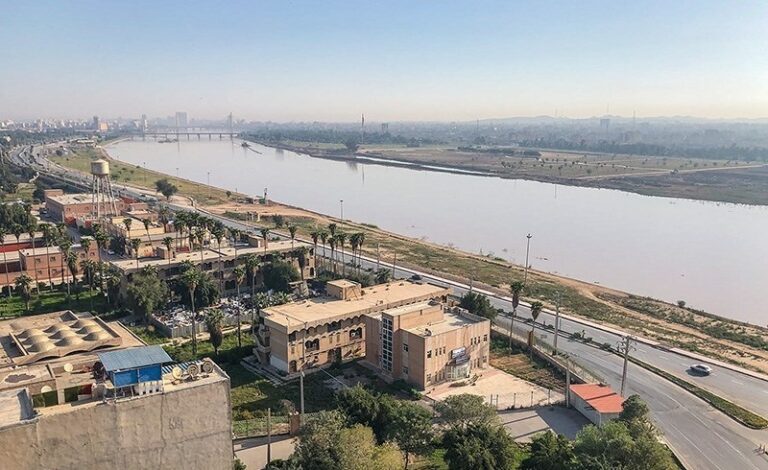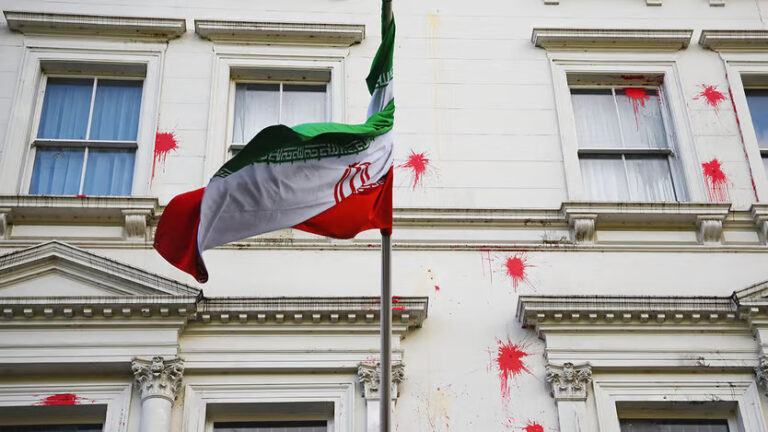Newsmax
Thursday, April 8, 2010 10:18 AM
By: Ken Timmerman
The Voice of America has swept aside criticism from Republican senators and members of Congress who asked the radio station to respond to charges that it has toned down its criticism of Iranian censorship on White House orders.
Sens. Jon Kyl, R-Ariz., Tom Coburn, R-Okla., and Sam Brownback, R-Kansas, wrote to the Broadcasting Board of Governors, which oversees all U.S. taxpayer-funded broadcasting, asking for comment on the reported “intervention by the National Security Council to discourage, and then tone down,” a VOA statement condemning the jamming of international broadcasts by the government of Iran.
The accusation that VOA continues to broadcast “anti-American rhetoric” came in a March 19, 2010, letter spearheaded by Arizona Republican Rep. Trent Franks and signed by 68 other members of Congress and was based on a review of recent broadcasts and guests.
The Tehran regime became so worried that massive protests would erupt on the 31st anniversary of the 1979 revolution on Feb. 11 that it massively stepped up its jamming of the commercial satellites used to beam Persian-language broadcasts into Iran, including those of VOA, the BBC, and Germany’s Deutsche Welle Persian service.
The Europeans drafted a toughly worded statement of protest in early February that called the stepped-up jamming a violation of international law, but BBG Executive Director Jeffrey Trimble referred the matter to the National Security Council as a policy matter.
“According to e-mails from Trimble to several Broadcasting Board of Governors staffers, the NSC first didn’t want the VOA to join the statement if it mentioned ‘jamming.’ Later, the NSC modified its position to object to the use of the term ‘intensified jamming,’” The Washington Post reported at the time.
The three senators wrote Trimble on March 9, asking him to confirm the NSC intervention. If true, they wrote, “These actions constitute serious violations of U.S. law, policy, and tradition related to the editorial independence” of the BBG.
The BBG’s response was delivered while Congress was in the final throes of the healthcare debate.
Congress created the “firewall” between VOA journalists and U.S. government policymakers “to protect the integrity and credibility of the Agency’s journalistic product,” the BBG wrote.
However, “We do not believe that the Congress intended to give the BBG (or VOA) the ability to issue statements in its federal capacity that might conflict with or infringe on the foreign policy prerogatives of the President or of other Executive Branch agencies that have primary policy duties in this area.
“Accordingly, the BBG appropriately consulted with the National Security Council and the State Department concerning the content of the proposed joint statement,” the BBG wrote.
A Senate staff member involved in the exchange told Newsmax that the three Republican senators “appreciated the speed and the detail” of the BBG response, and acknowledged that the BBG “could be right” that the White House interference was legal.
“But what was the outcome of that White House interference?” the staffer said. “The result was, the Voice of America . . . failed to call Iranian jamming censorship. That’s the issue.”
And yet, once the political issue was swept aside, much of the 18-page BBG response to the senators detailed U.S. efforts “to battle” Iranian government “jamming/censorship,” precisely the issue the White House did not want to tackle head on.
The letter revealed that the agency’s engineering director “has recently undertaken substantial surge activities in its satellite, shortwave, and Internet anti-jamming efforts,” and “has begun to test and deploy Internet censorship circumvention technologies for mobile devices . . . that would enable unfettered information access” to young Iranians.
The BBG estimated the cost of expanding its anti-jamming/censorship program at $4,472,002, and said it would take “approximately $58 million in additional funding to make VOA Persian into a real-time 24-hour-a-day (television) news broadcasting service.
The letter states that in the current fiscal year, which ends on Sept. 30, the BGG “plans to spend approximately $42.2 million on programming to Iran,” or around 5.7 percent of the BBG’s annual international broadcasting budget of $733.8 million.
Most recently, VOA has again welcomed onto air pro-Tehran advocates Trita Parsi and Houshang Amirahmadi, who run lobbying organizations that oppose any form of economic sanctions on Iran.
In a March 30 appearance, Amirahmadi said he had just returned from Iran, and that the United States should not just lift all existing sanctions on Iran, but encourage Chevron and Exxon and other businesses to invest there.
Amirahmadi lists both oil companies on his Web site as sponsors of his organization.
Parsi, who heads the National Iranian American Council (NIAC), a group whose pro-Tehran positions have angered many Iranian-Americans, tried to discourage supporters of the opposition Green movement on an April 1 show by declaring that even if they are successful in toppling the current Iranian government, U.S. sanctions will remain in place.
Although he appeared on a call-in show, VOA banned callers during his segment, apparently in deference to his unpopular positions. He claimed that Israeli diplomats “are happy with Ahmadinejad” and wanted him to win last year’s elections, “because a democratic Iran cannot be pushed around by the Americans.”
The Senate Foreign Relations Committee will debate VOA and the checkered performance of its Persian service when it schedules hearings to consider the nominations of a new board of directors for the BBG, a Senate staffer told Newsmax.











+ There are no comments
Add yours